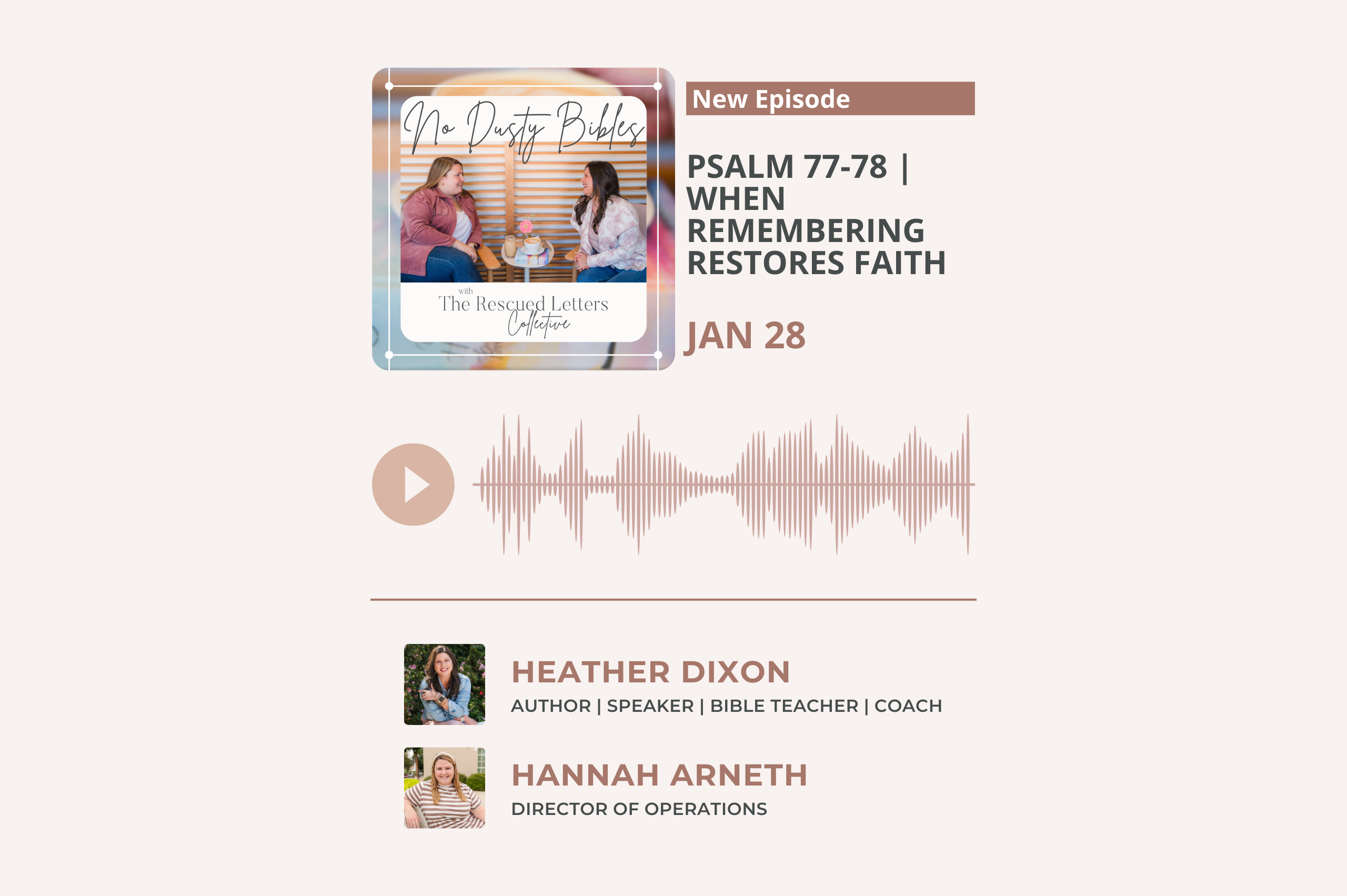Strong ministries are built on strong beliefs.
It’s not uncommon to receive an email from a reader or a visitor to my site with this question: Heather, what do you believe? In fact, I’ve responded to this question more than a few times this month. It’s phrasing may differ: where do you land on these [fill in the blank issues], what church are you affiliated with, what do you believe about this. Ultimately, what they are asking for is my statement of faith.
When I launched The Rescued Letters, I had a strong doctrinal foundation to my personal faith. But to be candid with you, I hadn’t considered how to communicate my stance on those issues or how to even think through my beliefs in some of the more obscure areas of theology. I knew that God had called me to teach the Bible to women and I trusted He would guide me to the right process of thinking through all of these things.
He has. And He continues to do so. Understanding Biblical doctrine is complex, deep work. But that’s the point. The more we seek to understand God and His Word, the deeper our relationship grows with Him.
But it’s important for ministry leaders to intentionally think through doctrinal issues. For those of you serving in the local church, your doctrinal beliefs are likely already aligned to your place of worship. For those of you serving in parachurch and itinerant ministries, your statement of faith is often the first piece of information your prospective partners will review.
The prompts and questions below are a guide I use to think through these issues. It’s helpful to consider them in three sections: primary issues, those that are foundational and unique to the Christian faith, secondary issues: those that Christians disagree on but typically distinguish one denomination from another, and tertiary issues, those that are a matter of personal conviction and may vary greatly within the same denomination.
Primary Issues: Essential Doctrines for Salvation
- What do I believe about the Bible? Its inspiration, its inerrancy, its sufficiency, and its canon or how it came to be the Bible we read today.
- What do I believe about God? The trinity, His general revelation through creation, His special revelation through His Word, and His attributes.
- What do I believe about Jesus? His incarnation, the deity of Christ, the humanity of Christ, His crucifixion, resurrection, ascension, and authority.
- What do I believe about the Holy Spirit? His personhood and indwelling, roles of the Spirit, the fruits of the Spirit, and spiritual gifts.
- What do I believe about man? The creation of man, the image-bearing quality of man, sin, and man’s calling to glorify God.
- What do I believe about salvation? That it is by grace alone through faith in Jesus Christ, the order of salvation, union with Christ, substitutionary atonement and double imputation.
Secondary Issues: Non-Essential Doctrines to the Gospel
- What I do I believe about the church? The universal church, the regional church, the local church, and church government.
- What do I believe about denominational practices? Baptism, communion, liturgy, women’s roles in the church, marriage, and the present use of spiritual gifts.
- What do I believe about eschatology?* Final judgment, new heaven and new earth, resurrection from the dead, heaven and hell, and God’s plan for Israel and the Church. *some place these issues in the third section, below.
Tertiary Issues: Non-Essential Doctrines to the Gospel
- What do I believe about issues of personal conviction? Worship style and choice of music, the use of alcohol and other substances, personal media consumption, financial giving, the age of the earth, etc.
This post contains affiliate links, which means that at no additional cost to you, I may receive a small commission if you click on and/or purchase from one of the product links. Affiliate links help to "keep the lights on" at The Rescued Letters and I only recommend products that I personally use or are from companies that I know and trust. I really appreciate your support in this way. You can read my full disclosure policy here.
Resources & Encouragement to Help
Before you launch your ministry, take time to clarify what you believe and why, because your doctrine will define your direction. Even if you don’t yet have finite answers on the secondary and tertiary doctrines, make sure you have a solid understanding of the primary ones. How you teach, lead, and serve the body of Christ will flow from these doctrines. I also encourage you to develop an intentional habit of rotating through these questions as you dive deeper into your understanding of God and His Word.
If reading through these questions feels overwhelming, you’re not alone. Let me encourage you with two things.
First, there are many brilliant minds who have created valuable resources to help you wrestle with these questions on your own. Two of my favorite resources are The Theology Handbook from Daily Grace Co and Systematic Theology by Wayne Grudem. I find The Theology Handbook to be a more accessible starting point, but I use both resources in my personal study.
Second, I cling to the truth of Acts 4:13 always, that the only prerequisite for leading an impactful ministry is time with Jesus. Lean into Him and allow the Holy Spirit to guide your mind in understanding and unraveling these wonderful doctrines that help us understand and love Him more.
When they saw the courage of Peter and John and realized that they were unschooled, ordinary men, they were astonished and they took note that these men had been with Jesus. – Acts 4:13 NIV
Know that if you ever have questions—I’m only an email away.
I’m rooting for you, always.
Heather







